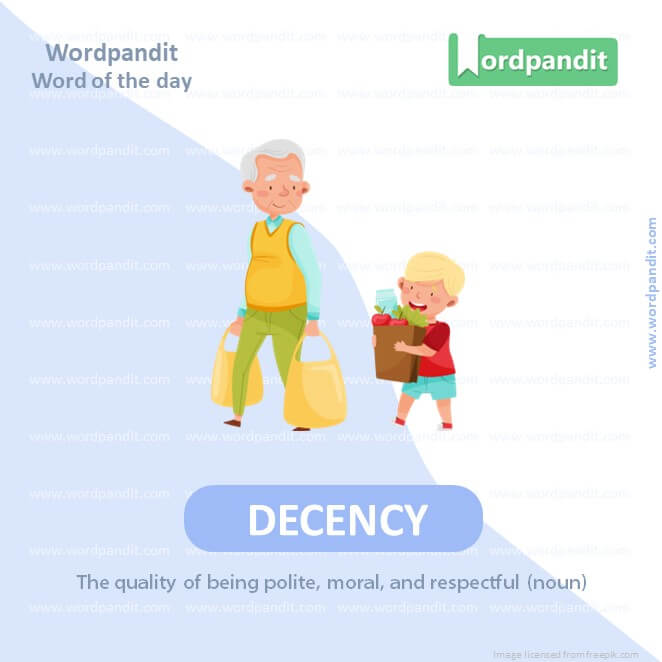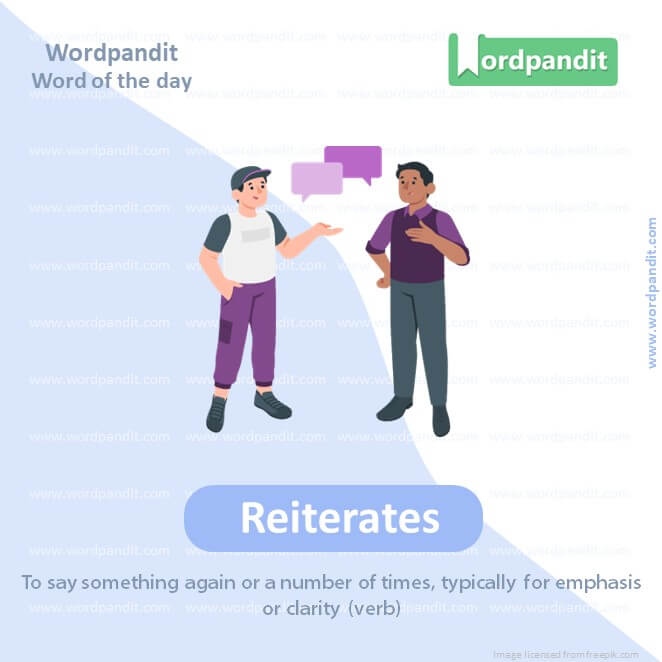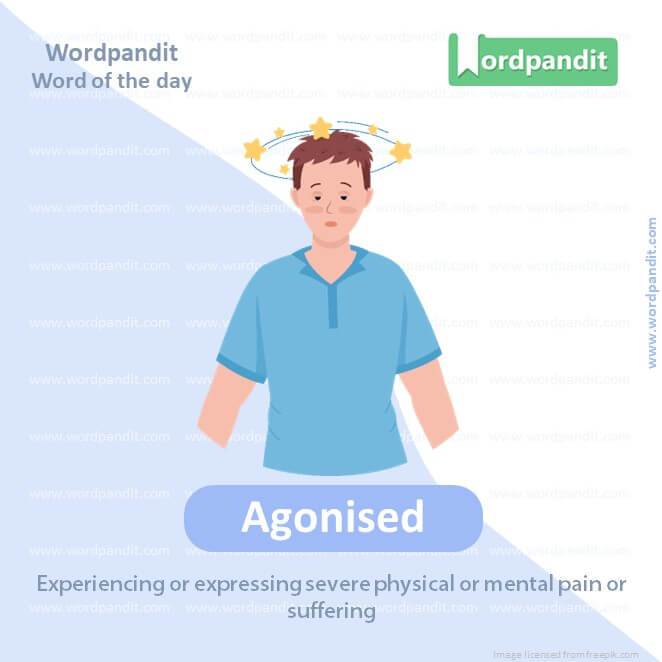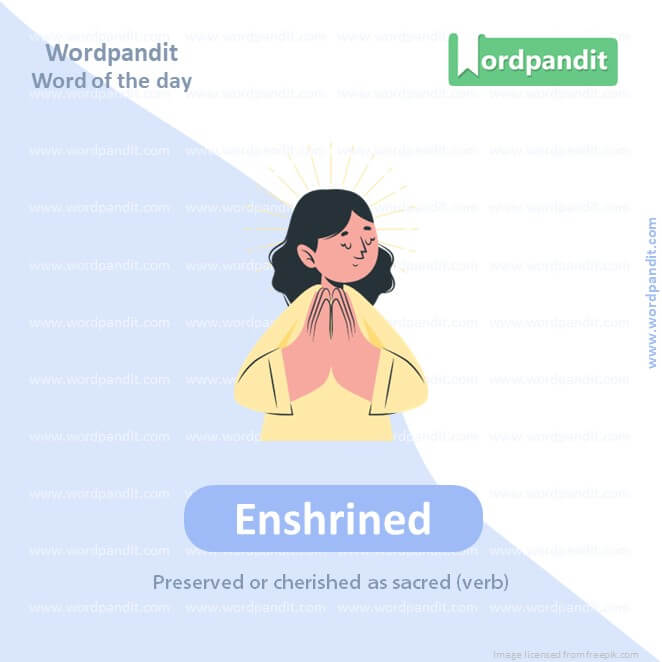Daily Vocabulary Words: List of Daily Used Words
Hi there. Welcome to this special section @ Wordpandit.
Our endeavour here is straightforward: highlighting important daily vocabulary words, you would encounter in The Hindu. This is your repository of commonly used words; essentially, we are posting a list of daily used words. Hence, this has significant practical application as it teaches you words that are commonly used in a leading publication such as The Hindu.
Visit the website daily to learn words from The Hindu.
WORD-1: EMBOLDENED
CONTEXT: These laws had emboldened the majority and induced fear among all the minorities. They had also bred a whole layer of intermediaries (apart from the police) who decided which parts of the cattle trade would be allowed.
SOURCE: The Hindu
EXPLANATORY PARAGRAPH: Imagine feeling really brave and confident after your friends cheer you on before a big game. This feeling of increased courage is called being “emboldened.” It means to feel encouraged and confident enough to do something.
MEANING: Made bold or courageous (verb).
PRONUNCIATION: em-BOLD-ened
SYNONYMS: encouraged, fortified, heartened, inspired, strengthened
USAGE EXAMPLES:
1. She was emboldened by the support of her friends.
2. The success of the project emboldened the team to take on more challenging tasks.
3. The favorable response emboldened him to speak his mind.
4. Activists were emboldened by the new legislation to push for further reforms.
WORD-2: MATTERED
CONTEXT: So it was with some relief that the citizens returned to things that mattered after May 2023: jobs, alleviation of poverty and price rise, freedom of speech, the rule of law, and dealing with the prospect of drought.
SOURCE: The Hindu
EXPLANATORY PARAGRAPH: Imagine your opinion helping to decide what game to play at recess. Your choice made a difference in the final decision. This importance or effect is what is meant when something “mattered.” It means to be of importance or significance.
MEANING: Was of importance or significance (verb).
PRONUNCIATION: MAT-erd
SYNONYMS: counted, meant, signified, influenced, weighed
USAGE EXAMPLES:
1. It mattered to her that everyone felt included in the group.
2. His opinion really mattered when making the final decision.
3. What mattered most was that everyone was safe after the accident.
4. Each small donation mattered to the success of the fundraising event.

WORD-3: DECENCY
CONTEXT: It crosses all standards of decency and amplifies isolated events. It also stands in striking contrast to the Congress’ advertisements based on its guarantees and on the unfulfilled Union government promises.
SOURCE: The Hindu
EXPLANATORY PARAGRAPH: Imagine everyone in class treating each other kindly and fairly, following the rules of polite behavior. This good and respectful behavior is called “decency.” It means the quality of being polite, moral, and respectful.
MEANING: The quality of being polite, moral, and respectful (noun).
PRONUNCIATION: DEE-suhn-see
SYNONYMS: propriety, respectability, morality, integrity, civility
USAGE EXAMPLES:
1. He appealed to their sense of decency when asking for a calm discussion.
2. Decency requires that we treat others with respect.
3. The article questioned the decency of the public figures involved.
4. She conducted herself with decency and honesty in all her dealings.

WORD-4: REITERATES
CONTEXT: It thus reiterates its contempt for the Constitution and indeed the rule of law that the people of Karnataka enjoy.
SOURCE: The Hindu
EXPLANATORY PARAGRAPH: Imagine you keep reminding your friend to bring their soccer ball to school every day. You say it more than once to make sure they remember. This act of repeating something for emphasis or clarity is called “reiterating.” It means to say something again, usually for emphasis.
MEANING: Says something again or a number of times, typically for emphasis or clarity (verb).
PRONUNCIATION: ree-IT-uh-rates
SYNONYMS: repeats, restates, recapitulates, echoes, reaffirms
USAGE EXAMPLES:
1. The teacher reiterates the rules each day before class begins.
2. He reiterated his commitment to the project during the meeting.
3. The company reiterates its goal to be environmentally friendly.
4. In her speech, she reiterated the importance of community service.
WORD-5: SEAFARERS
CONTEXT: India, with 9.35% of global seafarers and ranking third globally, confronts these issues, evident from recent incidents such as the seizure of MSC Aries and the detention of MT Heroic Idun at Nigeria (this last case went on for several months).
SOURCE: The Hindu
EXPLANATORY PARAGRAPH: Imagine people who spend most of their lives traveling and working on ships across the vast oceans. These people are called “seafarers.” They are professionals who navigate and operate ships at sea.
MEANING: People who work or travel by sea, particularly those who operate ships (noun).
PRONUNCIATION: SEE-fair-ers
SYNONYMS: mariners, sailors, marines, navigators, shipmen
USAGE EXAMPLES:
1. The ancient seafarers explored distant lands across the oceans.
2. Modern technology aids seafarers in navigating the seas more safely.
3. Seafarers are often away from their families for long periods.
4. A memorial was erected to honor the seafarers lost at sea.
WORD-6: Quintessentially
CONTEXT: a tender mother and a gifted brother in a quintessentially suburban life, Gupta unveils what really goes on behind closed doors, be it mental health afflictions, verbal and physical abuse; all with the possibility of looming — though unexpected — deaths making an appearance.
SOURCE: The Hindu
EXPLANATORY PARAGRAPH: Imagine something that is the perfect example of its kind, like a hot dog at a baseball game or a cup of tea in England. These things are “quintessentially” American or British because they represent the essence of those cultures. “Quintessentially” means representing the most typical or characteristic qualities of something.
MEANING: Representing the most typical example or characteristic of a quality or class (adverb).
PRONUNCIATION: kwin-tuh-SEN-shuh-lee
SYNONYMS: typically, essentially, perfectly, ideally, absolutely
USAGE EXAMPLE:
1. Baseball is quintessentially American.
2. The quaint village is quintessentially English.
3. She has a style that is quintessentially modern.
4. Their hospitality was quintessentially Southern.

WORD-7: Estranged
CONTEXT: We had been best friends for most of our lives, but at the time of his death, we had been estranged for about two years. In my grief, I had to understand how he died, and what any of us could have done differently to save him.
SOURCE: The Hindu
EXPLANATORY PARAGRAPH: Imagine if you had a friend who you used to be very close to but now you hardly ever talk and feel distant from them. This feeling of being separated and no longer close is called being “estranged.” It means to become distant or no longer close to someone, especially in a relationship.
MEANING: No longer close or affectionate to someone; alienated (adjective)
PRONUNCIATION: eh-STRAYNJ-d
SYNONYMS: alienated, separated, distanced, disconnected, disaffected
USAGE EXAMPLE:
1. He became estranged from his family over the years.
2. The actor and his estranged wife are seeking a divorce.
3. They were best friends before becoming estranged.
4. The siblings were estranged after the dispute over their inheritance.

WORD-8: Agonised
CONTEXT: I agonised over whether or not to write this book. But I kept coming back to the belief that if a book like this had existed for my family when we were younger, maybe things could have turned out differently.
SOURCE: The Hindu
EXPLANATORY PARAGRAPH: Imagine you’re trying to make a really tough decision, like choosing between two sports you love, and it’s causing you a lot of stress and worry. This feeling of severe worry or stress about making the right choice is called being “agonised.” It means suffering great anguish or torment, especially over a decision or situation.
MEANING: Experiencing or expressing severe physical or mental pain or
suffering.
PRONUNCIATION: AG-uh-nyzd
SYNONYMS: tormented, pained, distressed, anguished, tortured
USAGE EXAMPLE:
1. She agonised over the decision for days.
2. He was visibly agonised by the news of the accident.
3. The choice between career and family agonised him.
4. The community agonised about how to respond to the crisis.
WORD-9: Prevalent
CONTEXT: The Indian Overseas Congress president Sam Pitroda too has unnecessarily stirred up a hornet’s nest regarding inheritance tax prevalent in the United States, which does not fit in here.
SOURCE: The Hindu
EXPLANATORY PARAGRAPH: Imagine noticing that everyone at school is wearing the same style of shoes. This popular style of shoes is what we call “prevalent.” It means something that is common or widespread in a particular area or at a particular time.
MEANING: Widespread in a particular area or at a particular time (adjective).
PRONUNCIATION: PREV-uh-lent
SYNONYMS: widespread, common, frequent, ubiquitous, pervasive
USAGE EXAMPLE:
1. The use of smartphones is prevalent among teenagers.
2. Such beliefs were once prevalent in that region.
3. The disease is more prevalent in certain parts of the world.
4. There is a prevalent misconception about the safety of the procedure.

WORD-10: Enshrined
CONTEXT: As equality before the law for all Indians is enshrined in the Constitution and the Congress addresses it in its election manifesto, the Prime Minister calling it a ‘‘dangerous game’‘ is nothing but divisive and aimed at whipping up passions towards a certain community, which is an agenda in itself (Page 1, April 25).
SOURCE: The Hindu
EXPLANATORY PARAGRAPH: Imagine something very important, like a rule or right, being placed in a special protective case so that everyone respects and protects it. This act of protecting and respecting something important is called “enshrining.” It means to preserve or cherish something as sacred.
MEANING: Preserved or cherished as sacred (verb).
PRONUNCIATION: en-SHRYNED
SYNONYMS: preserved, protected, consecrated, immortalized, safeguarded
USAGE EXAMPLE:
1. The right to free speech is enshrined in the Constitution.
2. His achievements are enshrined in the hall of fame.
3. The principles of equality are enshrined in the company’s policies.
4. Cultural traditions are often enshrined in rituals and ceremonies.
Vocabulary Daily Words
Among the myriad aspects of language learning, the role of ‘vocabulary daily words’ attests to their undeniable importance. These everyday words form the bedrock of communication. Whether used in casual chat or formal discussion, the fluency and understanding of ‘vocabulary daily words’ can significantly uplift the quality of interaction. However, the vital question is, how to effectively learn these ‘vocabulary daily words’?
The crux of learning ‘vocabulary daily words’ lies in a well-rounded approach that encompasses exposure, understanding, memorization, and practice. Rote memorization might seem like a quick solution, but it lacks context and, thereby, retention. Hence, opt for a diverse range of resources like books, newspapers, podcasts, and digital media. These will bring ‘vocabulary daily words’ to life, providing real-life usage examples and making the learning process inherently engaging.
Next, using memory-enhancing techniques can significantly improve retention of ‘vocabulary daily words’. Techniques such as flashcards or the Leitner System align with the principles of spaced repetition, allowing more effective and long-term learning. Incorporating mnemonic devices, associating new words with unique stories or images, can further facilitate this learning process.
The key to fully grasping ‘vocabulary daily words’ lies in practical usage. Make it a habit to use these words in your daily communications. Whether it’s a friendly conversation, a professional email, or a social media post, try integrating these new words. Doing so provides hands-on practice, strengthening your comprehension and application of these words.
In a nutshell, ‘vocabulary daily words’ are a treasure in the language learning landscape. By harnessing diversified resources, utilizing memory techniques, and actively using these words, your grip on the ‘vocabulary daily words’ will strengthen significantly. So, turn the pages, hit play, start a conversation, and let these ‘vocabulary daily words’ shape the story of your linguistic journey.











